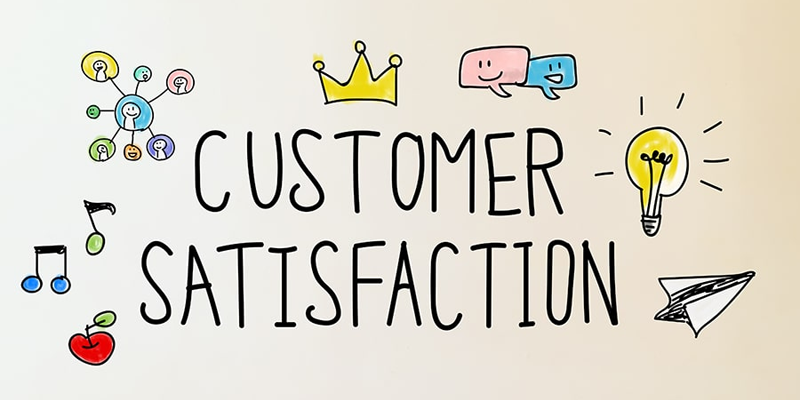People online are more cynical than ever and with good reason. Fraud is at an all-time high and cyber-criminal are finding ever more ingenious ways to separate people from their hard-earned money without giving anything in return. You need your site to stand out from the ever-growing mass of poor quality and scam related content that appears on the internet every day. Obviously, you need to make sure that your product or service is of the highest possible quality it can be, but there are also a few digital marketing tricks you can use, too. Here’s Probella’s guide to turning sceptical or cynical website users into real customers.
1. Focus on professionalism
It doesn’t matter what the niche of your business is, professionalism is always a good selling point and will instil confidence in any potential customers. Consider using an agency to audit your current digital and offline marketing materials so they can offer you some advice on how to improve. If this is beyond your budget, you could carry out the research yourself. Are your pages loading fast enough? Is the copy on your site easy to read and clear? Ask yourself if you would honestly be inclined to use your own company as a customer? If the answer to any of these questions is no, you will need to make some changes. Professionalism doesn’t mean needlessly elevated language or complex, artistic website design. Those things can be helpful, but the basic’s matter, too. Ensure your email works properly and doesn’t redirect to a spam box. Have your contact details and physical address listed clearly on your home page and always make sure that you’ve checked for minor errors such as products that have been listed twice or other niggles like missing links.
2. Give People Several Reasons to Convert
As anybody in business will tell you, competition is fierce in practically every industry. Simply providing a “good” service isn’t enough, you’ll need to add some extra incentive if you want people to become regular customers. Special offers can be a very effective way of encouraging hesitant buyers to make a purchase. For service providers, trial periods and discounted rates for the first few weeks or months can also produce excellent results. Essentially, you’re trying to offer something that nobody else does as a way of providing assurance to your potential customers. When you do this, it makes you stand out and creates the sense that you are giving away something for free. No matter who they are, everybody everywhere loves to feel like they’re getting something extra. Ultimately, you are aiming for people to feel as if there are far more reasons for them to use your service than there are not to.
3. Address Their Concerns Directly
This approach takes serious nerve and the kind of mettle that is only found in those who believe in what they’re doing. Getting this approach wrong can make you sound disingenuous but getting it right can help you to connect with people in a way that many businesses can never achieve. The phrasing and tone you employ is critical, here. You need to highlight some of the common problems in your industry sector that other customers may have mentioned, but in a way that sounds so confident, any website users will be fully on board by the time they’ve finished reading or watching your content. Honesty is often the best policy and a clear, direct approach coupled with an understanding of the most pressing consumer concerns in your sector will often work wonders.
4. Let Them Try Before They Buy
Though this can be an expensive option, especially for start-ups, it does send a very specific message to anybody who comes in to contact with your product. It says, “we are so confident about the quality of what we are offering, we know you’ll want to keep using it.” Cynical customers will often pick faults in products or services before even using them, so to negate this, simply allow the quality of what you have on offer to speak for itself. Some of the most successful businesses in the world still use this model today. From Netflix to Amazon, YouTube to various supermarket delivery services, the “try before you buy” approach has been one of the most effective strategies ever devised.
5. Encourage Your Biggest Fans to Leave Testimonials
Nobody trusts marketing people, but most people will believe a review that has been written or recorded by a genuine customer. Always make a big deal out of positive feedback and celebrate it where you can. Even if you are in the early stages of your business, asking customers to give you feedback is essential. A quote from an email or even a tweet can be enough to make a sceptical website visitor that little bit more curious. If you can replicate this a few times and even verify that the comment was left by a real person, this can be even more effective than an all singing, all dancing advertising campaign. Never underestimate the power of positive recommendations from real, paying customers.
6. Capitalise on Your Credentials and Experience
If you are officially certified by the licensing or governing body of your industry, always make this clear. Similarly, if you have been given awards for the quality of your customer service, online store or delivery service, don’t be afraid to shout about it. Any work you have done with high profile clients and well-known businesses should also be made as prominent as possible on any digital media you use to promote your business. People respond well to anything that creates a sense of trust and respectability around your brand, which means that other company’s logos (with permission, of course) and links to their sites can be a very effective way of demonstrating that you’re good at what you do.






